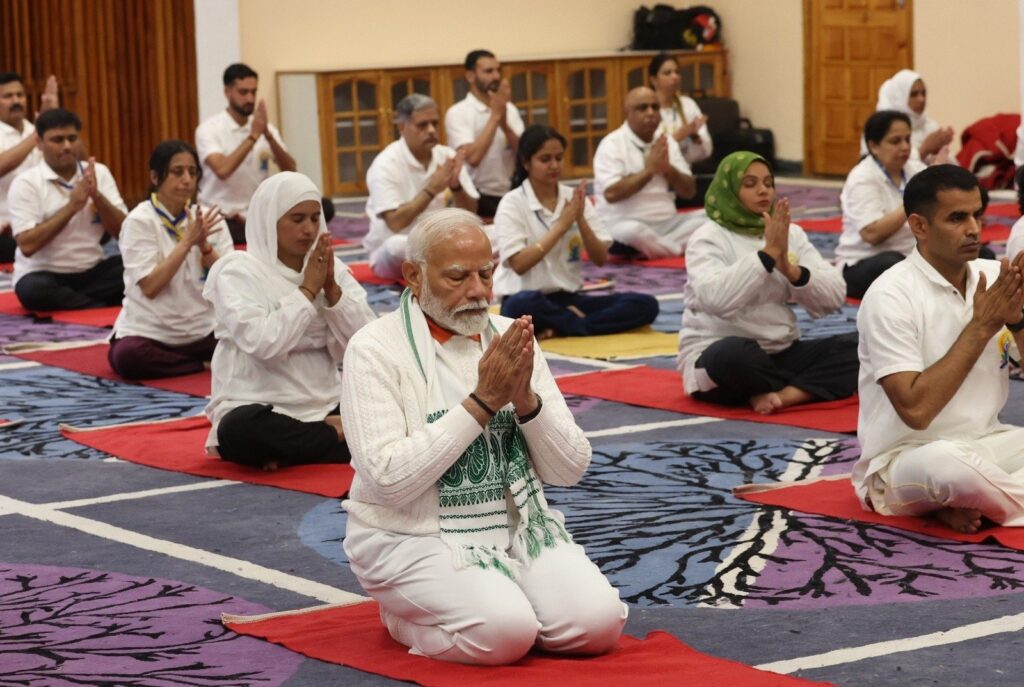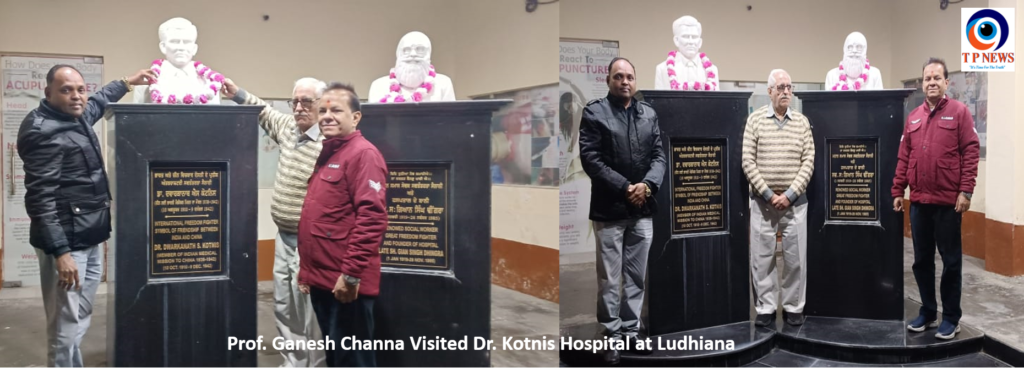New Delhi: The 10th International Day of Yoga is being celebrated worldwide today. The main event took place at the Sher-i-Kashmir International Conference Centre (SKICC) in Srinagar, Jammu and Kashmir, with Prime Minister Narendra Modi leading the celebrations. The event was attended by J&K Lieutenant Governor Manoj Sinha, Union Minister Prataprao Ganpatrao Jadhav, and other dignitaries. Globally, Indian Embassies and Missions are also participating, reflecting the widespread influence of yoga.


During the event, Prime Minister Modi addressed the gathering and participated in the Common Yoga Protocol session, emphasizing yoga’s importance for physical, mental, and spiritual growth. He highlighted the increasing global adoption of yoga and its recognized benefits. Modi noted that almost every world leader has discussed yoga with him, and shared instances of its growing acceptance, such as the inauguration of a Yoga Center in Turkmenistan in 2015, the inclusion of yoga therapy in Turkmenistan’s State Medical Universities, yoga’s integration into Saudi Arabia’s education system, and the activities of the Mongolian Yoga Foundation. He also mentioned that 1.5 crore Germans have taken up yoga, indicating its growing popularity in Europe, and highlighted ongoing research and numerous published papers on yoga.


The Prime Minister also discussed the expansion of yoga over the past decade, noting the emergence of a new yoga economy. This includes the rise of yoga tourism, retreats, resorts, dedicated yoga facilities at airports and hotels, and the demand for yoga apparel, equipment, and personal trainers, all of which are creating new job opportunities for the youth.
This year’s International Yoga Day theme, ‘Yoga for Self and Society,’ underscores yoga’s role as a powerful agent for global good, helping people live in the present without the burdens of the past.
To broaden the inclusivity of yoga benefits, Prime Minister Modi has written letters to all Gram Pradhans, encouraging grassroots participation and promoting yoga in rural areas.















